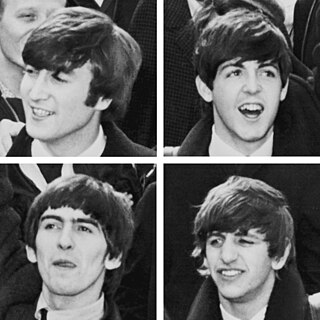
The Beatles were an English rock band formed in Liverpool in 1960, comprising John Lennon, Paul McCartney, George Harrison and Ringo Starr. They are regarded as the most influential band of all time and were integral to the development of 1960s counterculture and the recognition of popular music as an art form. Rooted in skiffle, beat, and 1950s rock 'n' roll, their sound incorporated elements of classical music and traditional pop in innovative ways. The band also explored music styles ranging from folk and Indian music to psychedelia and hard rock. As pioneers in recording, songwriting and artistic presentation, the Beatles revolutionised many aspects of the music industry and were often publicised as leaders of the era's youth and sociocultural movements.

Brian Samuel Epstein was an English music entrepreneur who managed the Beatles from 1962 until his death in 1967.
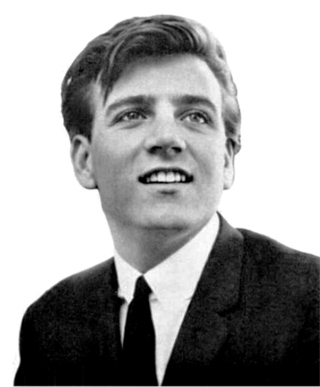
William Howard Ashton, known professionally as Billy J. Kramer, is an English pop singer. With The Dakotas, Kramer was managed by Brian Epstein during the 1960s and scored hits with several Lennon–McCartney compositions never recorded by the Beatles, among them the UK number one "Bad to Me" (1963). Kramer and the Dakotas had a further UK chart-topper in 1964 with "Little Children" and achieved U.S. success as part of the British Invasion. Since the end of the beat boom, Kramer has continued to record and perform. His autobiography, Do You Want to Know a Secret, was published in 2016.
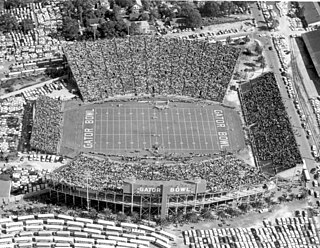
The Gator Bowl was an American football stadium in Jacksonville, Florida. Originally built in 1927, all but a small portion was razed in 1994 in preparation for the NFL's Jacksonville Jaguars' inaugural season; the reconstructed stadium became Jacksonville Municipal Stadium, now EverBank Stadium. The old stadium and its replacement have hosted the Gator Bowl, a post-season college football bowl game, since its inception in 1946. It also hosted the Florida–Georgia game, an annual college football rivalry game between the University of Florida and the University of Georgia, and was home to several professional sports teams, including the Jacksonville Sharks and Jacksonville Express of the World Football League (WFL), the Jacksonville Tea Men soccer team, and the Jacksonville Bulls of the United States Football League.
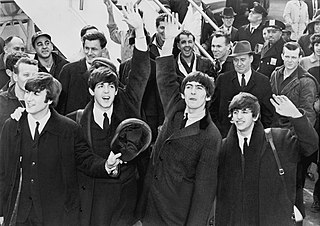
Beatlemania was the fanaticism surrounding the English rock band the Beatles in the 1960s. The group's popularity grew in the United Kingdom throughout 1963, propelled by the singles "Please Please Me", "From Me to You" and "She Loves You". By October, the press adopted the term "Beatlemania" to describe the scenes of adulation that attended the band's concert performances. From the start of 1964, their world tours were characterised by the same levels of hysteria and high-pitched screaming by female fans, both at concerts and during the group's travels. Commentators likened the intensity of this adulation to a religious fervour and to a female masturbation fantasy. Among the displays of deity-like worship, fans would approach the band in the belief that they possessed supernatural healing powers.

James George Nicol is an English drummer and business entrepreneur. He is best known for sitting-in for Ringo Starr in the Beatles for eight concerts of the Beatles' 1964 world tour during the height of Beatlemania, elevating him from relative obscurity to worldwide fame and then back again in the space of a fortnight. Nicol had hoped that his association with the Beatles would greatly enhance his career but instead found that the spotlight moved away from him once Starr returned to the group, and in 1965 his subsequent lack of commercial success culminated in bankruptcy. In 1975, after having worked with a number of different bands which included a successful relationship with the Spotnicks, and several more while living in Mexico, he left the music business to pursue a variety of entrepreneurial ventures.

Cynthia Lennon was the first wife of John Lennon and the mother of Julian Lennon.

"Ticket to Ride" is a song by the English rock band the Beatles, written primarily by John Lennon and credited to Lennon–McCartney. Issued as a single in April 1965, it became the Beatles' seventh consecutive number 1 hit in the United Kingdom and their third consecutive number 1 hit in the United States, and similarly topped national charts in Canada, Australia and Ireland. The song was included on their 1965 album Help! Recorded at EMI Studios in London in February that year, the track marked a progression in the Beatles' work through the incorporation of drone and harder-sounding instrumentation relative to their previous releases. Among music critics, Ian MacDonald describes the song as "psychologically deeper than anything the Beatles had recorded before" and "extraordinary for its time".
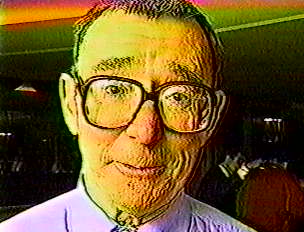
James Alistair Taylor was an English personal assistant of Brian Epstein, the manager of the Beatles. As an employee at Epstein's company NEMS, Taylor accompanied him when he first saw the Beatles perform, at the Cavern Club in Liverpool on 9 November 1961. Taylor subsequently worked as the group's so-called "Mr. Fixit", devising escape routes from crazed fans and assisting the band members in purchasing property. He later became general manager of Apple Corps but was fired soon after Allen Klein arrived to address the company's financial problems. Taylor published various memoirs of his years in the Beatles' employ, including Yesterday: The Beatles Remembered and With the Beatles.

"Please Please Me" is a song released by the English rock band the Beatles. It was their second single in the United Kingdom, and their first in the United States. It is also the title track of their first LP, which was recorded to capitalise on the success of the single. It is a John Lennon composition, although its ultimate form was significantly influenced by producer George Martin.
Larry Kane is an American journalist, news anchor and author known for his over 6 decade career. Kane spent 36 years as a news anchor in Philadelphia, and is the only person to have anchored at all three Philadelphia owned and operated television stations. Early in his career, he was the only broadcast journalist to travel to every stop on the Beatles' 1964 and 1965 American tours. He has authored three books about the Beatles, as well as a memoir and a novel. After retiring from television journalism in 2002, he is a special contributor for KYW News Radio.

Help! is a 1965 British musical comedy-adventure film directed by Richard Lester, starring The Beatles and featuring Leo McKern, Eleanor Bron, Victor Spinetti, John Bluthal, Roy Kinnear and Patrick Cargill. The second film starring the Beatles following Lester's A Hard Day's Night, Help! sees the group struggle to protect Ringo Starr from a sinister eastern cult and a pair of mad scientists, all of whom are obsessed with obtaining a sacrificial ring sent to him by a fan. The soundtrack was released as the band's fifth studio album under the same name.
Richard Graham Sarstedt, known by the stage name Eden Kane, is an English pop/rock singer, musician, record producer and actor best known as a teen idol in the early 1960s, in the pre-Beatles era. He has also recorded under his birth name and with backing group the Downbeats.
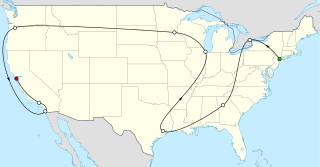
The Beatles staged their second concert tour of the United States in the late summer of 1965. At the peak of American Beatlemania, they played a mixture of outdoor stadiums and indoor arenas, with historic concerts at Shea Stadium in New York and the Hollywood Bowl. Typically of the era, the tour was a "package" presentation, with several artists on the bill. The Beatles played for just 30 minutes at each show, following sets by support acts such as Brenda Holloway and the King Curtis Band, Cannibal & the Headhunters, and Sounds Incorporated.
The Cavern Club at 10 Mathew Street, in Liverpool was the venue where the Beatles' UK popularity started. John Lennon, Paul McCartney, George Harrison and Pete Best were first seen by Brian Epstein at the club. Epstein eventually became their manager, going on to secure them a record contract. Best was replaced by Ringo Starr on 16 August 1962, which upset many Beatles fans. After taunts of, "Pete forever, Ringo never!", one agitated fan headbutted Harrison in the club.

The Beatles staged their third and final concert tour of North America in August 1966. It consisted of 18 performances, with 16 shows in United States venues and two in Canada. The tour was plagued with backlash regarding the controversy of John Lennon's remark about the Beatles being "more popular than Jesus", death threats, and the band's own dissatisfaction with the noise levels and their ability to perform live. Their speaking out against the Vietnam War added further controversy to the visit.
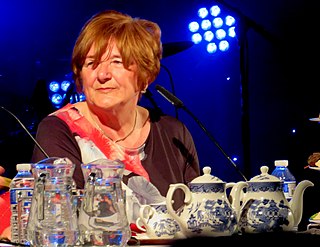
Freda Kelly is an Irish secretary who was employed by the Beatles and their manager Brian Epstein from 1962 through 1972, and was president of the group's official fan club. Kelly worked with the band as it rose from local popularity to world-wide fame, and through its dissolution. A 2013 documentary, Good Ol' Freda, chronicled Kelly's ten-plus year association with the group and its members.
The English rock group the Beatles toured West Germany, Japan and the Philippines between 24 June and 4 July 1966. The thirteen concerts comprised the first stage of a world tour that ended with the band's final tour of the United States, in August 1966. The shows in West Germany represented a return to the country where the Beatles had developed as a group before achieving fame in 1963. The return flight from the Philippines to England included a stopover in Delhi, India. There, the Beatles indulged in two days of sightseeing and shopping for musical instruments while still under the attention of the press and local fans.

The English rock group the Beatles toured the United States and Canada between 19 August and 20 September 1964. The 32 concerts comprised the second stage of a world tour that started with the band's tour of Europe, Hong Kong, and Australia and finished with their UK Autumn tour. The shows in the United States were a return to the country after their brief February 1964 tour.

The Beatles made several appearances on The Ed Sullivan Show, including three in February 1964 that were among their first appearances in front of an American audience. Their first appearance, on February 9, was seen by over 73 million viewers and came to be regarded as a cultural watershed that launched American Beatlemania—as well as the wider British Invasion of American pop music—and inspired many young viewers to become rock musicians. The band also made another appearance during their 1965 U.S. tour.
















